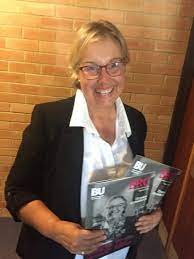 Professor Heather Hartwell is a UK-registered nutritionist and Professor in the Bournemouth University Business School. She has led many research projects, including the EC FP7 project VeggieEAT, the EC Horizon 2020 project FoodSMART and the British Council / Newton Fund project Veg+. In this blog post, Heather shares her experience of being a mentor at Bournemouth University and her thoughts on the mentoring role and relationship.
Professor Heather Hartwell is a UK-registered nutritionist and Professor in the Bournemouth University Business School. She has led many research projects, including the EC FP7 project VeggieEAT, the EC Horizon 2020 project FoodSMART and the British Council / Newton Fund project Veg+. In this blog post, Heather shares her experience of being a mentor at Bournemouth University and her thoughts on the mentoring role and relationship.
My primary goal in undertaking the mentoring programme facilitated by Organisational Development in 2009 was to use my experience and help staff who would like to enhance their own personal development and assist colleagues in realising their full aspirations. It was to give back to a community which had been totally supportive to me during my time in HE.
While there are theoretical models such as GROW (please see below) and much academic debate, mentoring to me is more fluid, less structured and more dependent on the mentor/mentee relationship.
| Goals
|
Identify goal to be achieved |
| Reality |
Acknowledge the current situation and raise self-awareness |
| Options
|
Identify alternative courses of action |
| Will |
Identify what will need to be done to make decisions on how to proceed.
The way forward |
Table 1 – The GROW model (Whitmore 2002)
Respect for each other and commitment to action are crucial in a successful mentoring relationship where both are in tune and harmony. Notwithstanding, the nature of the mentor/mentee rapport changes with time; initially the focus may be on helping the member of staff settle into their new role, providing information and support on practical issues. The dynamics will then change to be more symbiotic and two way street.
Academic staff mentoring new academic colleagues may:
- Review education and assessment strategies
- Give support on exam question setting and assignment marking
- Share education expertise and resources
- Observe learning and teaching sessions and offer supportive formative feedback
- Invite mentee to observe them
- Offer guidance on university quality procedures and systems
- Motivate and encourage innovative approaches to teaching
- Support the mentee in submitting bids for grants and funding, providing guidance, feedback and opportunities for peer review
- Support the mentee in writing for publication, identifying appropriate journals and providing guidance, feedback and opportunities for peer review
- Identify with the mentee to engage in research, enterprise, professional practice
- Identify opportunities with the mentee to disseminate research, enterprise, educational and professional practice
- Introduce them to appropriate networks of support and collaboration
What type of person makes an Effective Mentor?
Clutterbuck (2004) suggests that a good mentor is someone who has:
- An interest in developing others
- An interest in continuing to develop themselves
- Reasonably good explaining skills
- Good listening ability
- A broader perspective than the mentee’s
- Generally good behavioural skills
- Integrity
- A sense of humour (absolutely essential in the eyes of mentees!)
I thoroughly enjoy the role and get great pleasure in the success of those who I support.
I hope that I am inspirational, enthusiastic and empathetic, although we must ask my mentees! The role takes my work to a new level within BU and provides a resource that hopefully will benefit not just individuals but the organisation as a whole.
References:
CLUTTERBUCK, D., 2004. Everyone Needs a Mentor. London: Institute of Personnel Management
Talbot Campus Ref: 658.407124
WHITMORE, J., 2002. Coaching for Performance: GROWing people, performance and purpose. London: Nicholas Brealey
Talbot Campus Ref: 658.312404
 Professor Vanora Hundley is Deputy Dean for Research and Professional Practice in the Faculty of Health and Social Sciences (HSS). As Professor of Midwifery and an experienced midwifery researcher, Vanora has led a range of studies in the reproductive health field both in the UK and internationally. In this blog post, Vanora discusses the support available in FHSS to support mentoring.
Professor Vanora Hundley is Deputy Dean for Research and Professional Practice in the Faculty of Health and Social Sciences (HSS). As Professor of Midwifery and an experienced midwifery researcher, Vanora has led a range of studies in the reproductive health field both in the UK and internationally. In this blog post, Vanora discusses the support available in FHSS to support mentoring.
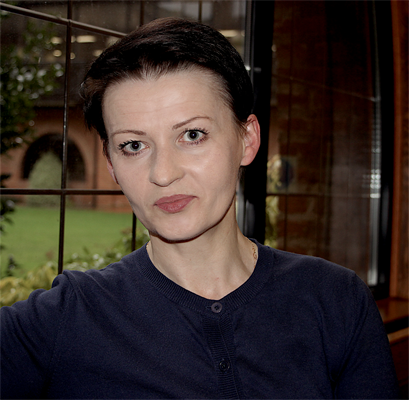 Dr Alla Yankouskaya is a Senior Lecturer in Psychology in the Faculty of Science and Technology. Her research focuses on social cognitive neuroscience and neuroimaging and she investigates the cognitive and brain mechanisms of human perceptions and attention. In this blog post, she discusses her experience of mentorship at Bournemouth University.
Dr Alla Yankouskaya is a Senior Lecturer in Psychology in the Faculty of Science and Technology. Her research focuses on social cognitive neuroscience and neuroimaging and she investigates the cognitive and brain mechanisms of human perceptions and attention. In this blog post, she discusses her experience of mentorship at Bournemouth University.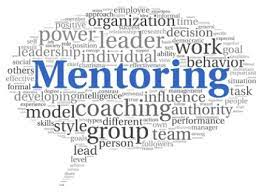
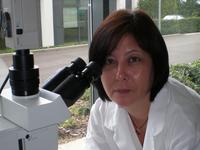 Professor Tiantian Zhang is Deputy Dean of Research and Professional Practice in the Faculty of Science and Technology (FST) at Bournemouth University. She is a leading figure internationally in research on cryopreservation of gametes and embryos of fish species and her research interests have been in the areas of cryopreservation of reproductive cells and the effect of cryopreservation on genome integrity and cellular metabolism with applications in biomedicine, conservation and aquaculture. In this blog post, Tiantian discusses the support available in FST to support mentoring.
Professor Tiantian Zhang is Deputy Dean of Research and Professional Practice in the Faculty of Science and Technology (FST) at Bournemouth University. She is a leading figure internationally in research on cryopreservation of gametes and embryos of fish species and her research interests have been in the areas of cryopreservation of reproductive cells and the effect of cryopreservation on genome integrity and cellular metabolism with applications in biomedicine, conservation and aquaculture. In this blog post, Tiantian discusses the support available in FST to support mentoring.
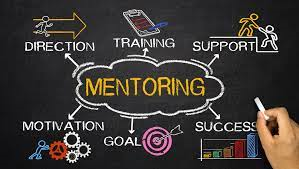

 Professor Heather Hartwell is a UK-registered nutritionist and Professor in the Bournemouth University Business School. She has led many research projects, including the EC FP7 project VeggieEAT, the EC Horizon 2020 project FoodSMART and the British Council / Newton Fund project Veg+. In this blog post, Heather shares her experience of being a mentor at Bournemouth University and her thoughts on the mentoring role and relationship.
Professor Heather Hartwell is a UK-registered nutritionist and Professor in the Bournemouth University Business School. She has led many research projects, including the EC FP7 project VeggieEAT, the EC Horizon 2020 project FoodSMART and the British Council / Newton Fund project Veg+. In this blog post, Heather shares her experience of being a mentor at Bournemouth University and her thoughts on the mentoring role and relationship.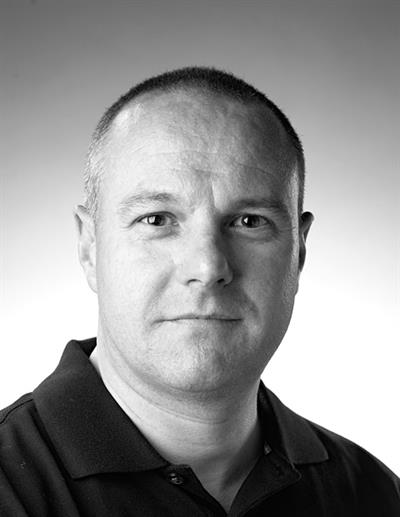 Professor Michael Silk is Deputy Dean for Research and Professional Practice in the Bournemouth University Business School (BUBS). His current research focusses on urban renewal, social inequalities and disability. He has received funding from the British Council, the ESRC, the AHRC, the British Academy and Sport England, amongst others. In this blog post, Michael discusses the support available in BUBS to support mentoring.
Professor Michael Silk is Deputy Dean for Research and Professional Practice in the Bournemouth University Business School (BUBS). His current research focusses on urban renewal, social inequalities and disability. He has received funding from the British Council, the ESRC, the AHRC, the British Academy and Sport England, amongst others. In this blog post, Michael discusses the support available in BUBS to support mentoring.










 SPROUT: From Sustainable Research to Sustainable Research Lives
SPROUT: From Sustainable Research to Sustainable Research Lives BRIAN upgrade and new look
BRIAN upgrade and new look Seeing the fruits of your labour in Bangladesh
Seeing the fruits of your labour in Bangladesh Exploring Embodied Research: Body Map Storytelling Workshop & Research Seminar
Exploring Embodied Research: Body Map Storytelling Workshop & Research Seminar Marking a Milestone: The Swash Channel Wreck Book Launch
Marking a Milestone: The Swash Channel Wreck Book Launch ECR Funding Open Call: Research Culture & Community Grant – Application Deadline Friday 12 December
ECR Funding Open Call: Research Culture & Community Grant – Application Deadline Friday 12 December MSCA Postdoctoral Fellowships 2025 Call
MSCA Postdoctoral Fellowships 2025 Call ERC Advanced Grant 2025 Webinar
ERC Advanced Grant 2025 Webinar Update on UKRO services
Update on UKRO services European research project exploring use of ‘virtual twins’ to better manage metabolic associated fatty liver disease
European research project exploring use of ‘virtual twins’ to better manage metabolic associated fatty liver disease